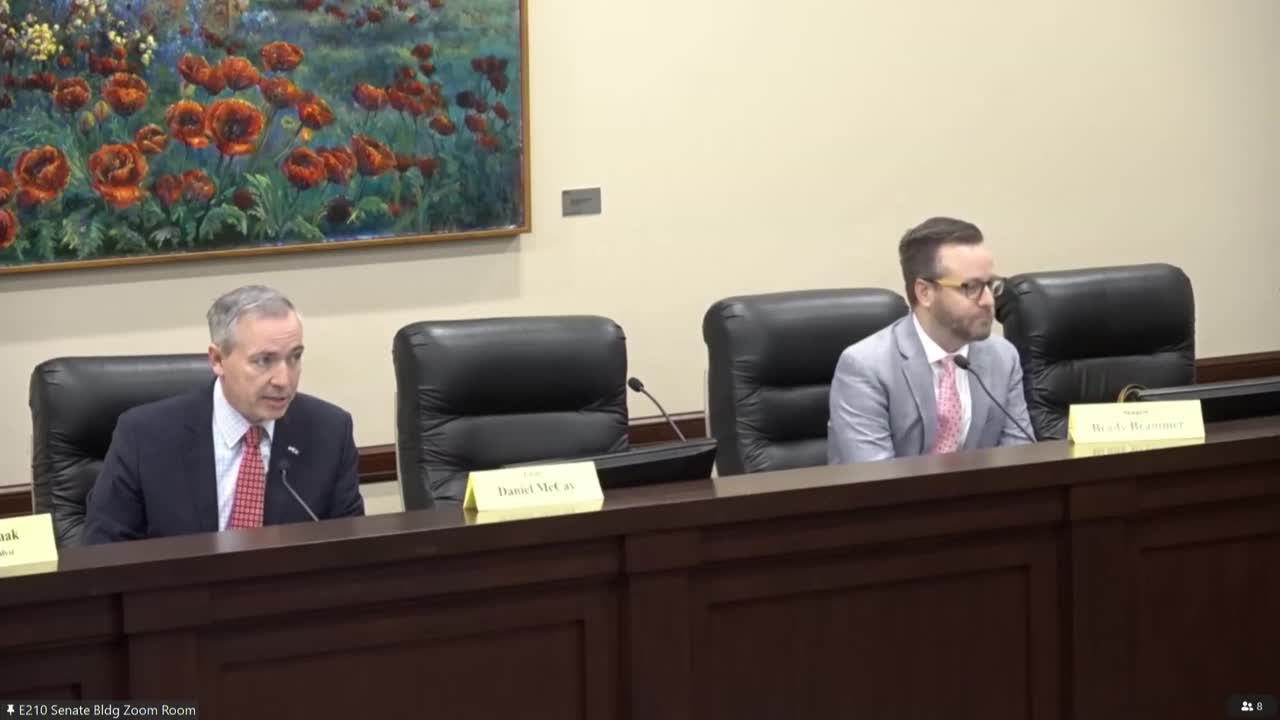Senate panel backs bill to change tax apportionment for banks; fiscal note $16 million
Get AI-powered insights, summaries, and transcripts
Subscribe
Summary
The Utah Senate Revenue and Taxation Committee voted unanimously Feb. 14 to adopt and recommend favorably the first substitute of Senate Bill 2 19, which removes an employee-and-property apportionment penalty for financial institutions; the bill carries a $16,000,000 fiscal note, sponsors said.
The Utah Senate Revenue and Taxation Committee on Feb. 14 adopted and recommended favorably the first substitute of Senate Bill 2 19, Financial Institution Tax Amendments, a measure sponsors say will remove an employee-and-property apportionment penalty applied to banks' investment income. The committee adopted the first substitute and then voted 3–0 to recommend the bill to the full Senate.
Proponents said the change aligns statutory language with a long-standing Tax Commission administrative rule and is aimed at keeping banks and investment operations in Utah. "We have a tax cut, and it's an important tax cut," said Steve Young, an attorney with Holland & Hart speaking for the Utah Bankers Association, explaining the bill's intent to tax investment income without the employee-and-property penalty.
The bill's fiscal note was cited repeatedly during the hearing. Sponsors and the bill's backers said the Legislative Fiscal Analyst estimate is about $16,000,000 in foregone revenue if current activity continues, and that passing the bill is intended to keep that economic activity and related tax base in state. Senator McKell (sponsor) said that if the bill does not pass, "these other banks are going to most likely leave the state as well," language used to emphasize potential revenue and economic-loss risk.
Committee members pressed proponents on how many businesses may have left Utah under the rule. Steve Young estimated the number of financial institutions that left in the last 20 years at "10 to 20," while acknowledging that was speculative. Young described the language in the first substitute as largely cut-and-pasted from the Tax Commission's administrative rule so the rule and statute will be consistent.
John Valentine, chairman of the Utah State Tax Commission, told the committee the commission "has no objections to the bill as the first substitute" and said the commission prefers the legislature make policy calls with large fiscal impacts rather than rely on administrative-rule changes. "If we do not do the first substitute, then the changes would cause significant ambiguities in the statute," Valentine said.
Committee members adopted the first substitute (motion passed unanimously, 3–0) and then voted 3–0 to recommend SB 2 19, first substitute, favorably to the Senate. The sponsor and proponents said they notified the public and released fiscal materials in advance; members noted the tax commission and fiscal analysts had been consulted.
What happens next: The committee sent the bill to the full Senate. The Tax Commission chairman said he is available for follow-up questions and that the commission prefers legislative action when a change carries a sizeable fiscal impact.
